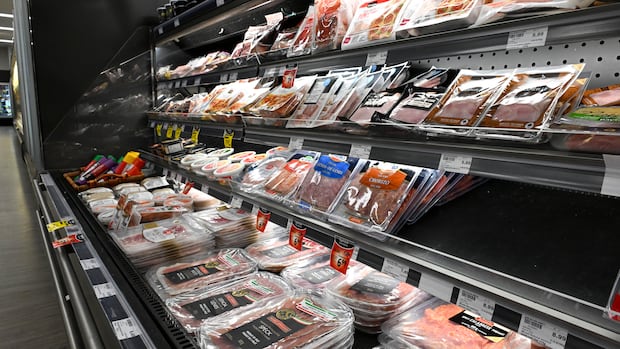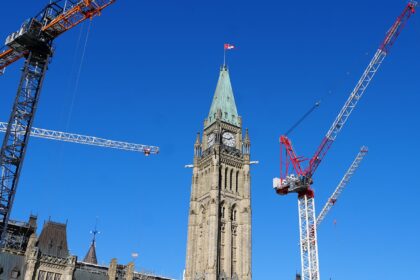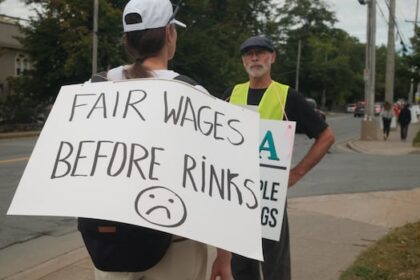PoliticsWith food inflation increasing in September, the Conservatives are blasting the federal Liberals over the cost of living, as the minority government prepares to table a budget that will need the support of at least one other party. The cost of groceries increased four per cent in SeptemberFood prices increased four per cent in September, following a 3.5 per cent increase in August. (Jacques Boissinot/The Canadian Press)With food inflation increasing in September, the Conservatives are blasting the federal Liberals over the cost of living, as the minority government prepares to table a budget that will need the support of at least one other party. Shoppers paid four per cent more for groceries in September compared to the same period last year, Statistics Canada said Tuesday. This follows a 3.5 per cent increase in August. The overall inflation rate rose to 2.4 per cent, surpassing the Bank of Canada’s target range.While food inflation is down from its post-pandemic peak of over 11 per cent in late 2022 and early 2023, the rate of increase has been rising since April, affected by shortages of beef and coffee along with pricier fresh vegetables and sugary goods. “Grocery prices are going up twice as fast as the target,” Conservative Leader Pierre Poilievre said Tuesday in the House. “Will the prime minister in the upcoming budget decrease his taxes and inflationary spending so Canadians can live affordable lives?” In response, Finance Minister François-Philippe promised “good news on Nov. 4,” when the government releases its 2025 budget, the first for Prime Minister Mark Carney’s government. The Conservatives have been calling for an “affordability agenda” as they seek to hold Carney to his words on the cost of living. Following his cabinet swearing-in ceremony in May, Carney told reporters that “Canadians will hold [the government to] account by their experience at the grocery store, when they’re paying their electricity bill, when they or their children are looking for a place to live.” ‘Hidden taxes on food’In a Monday letter to Carney laying out Conservative demands, Poilievre blamed “hidden taxes on food” for the rising costs. While food bought in grocery stores is not generally taxed, Poilievre argued that an industrial carbon tax on fertilizer and farm equipment, the federal fuel standard, food packaging regulations and inflation all amounted to taxes on Canadians. With global factors like climate change contributing to rising food prices worldwide, it’s not clear that the factors cited by Poilievre are main contributors to food inflation in Canada. The now-scrapped consumer carbon pricing system had a negligible impact on inflation, a study published in December found, suggesting that the smaller industrial carbon tax would have an even lower impact. Speaking earlier on Tuesday, Champagne said the government was working to bring down the cost of living.“We know it’s the number one concern for Canadians,” he said, pointing to a grocery code of conduct and the national school food program as two areas where the government had taken action. Government House Leader Steven Mackinnon, meanwhile, called Poilievre’s demands for an affordable budget “ludicrous.”With two weeks until the budget, Mackinnon said he was worried opposition parties were not “seriously” engaging in debate. “We have two opposition parties principally that aren’t taking this matter very seriously,” he said. “Canadians are looking for certainty. We had an election six months ago. Canadians are looking for predictability, stability and especially a plan. We intend to present a plan to Canadians to deal with this very critical moment in our history.”ABOUT THE AUTHORCampbell MacDiarmid is a reporter with the CBC Ottawa bureau
With food inflation rising, Conservatives demand Liberal action on cost of living










